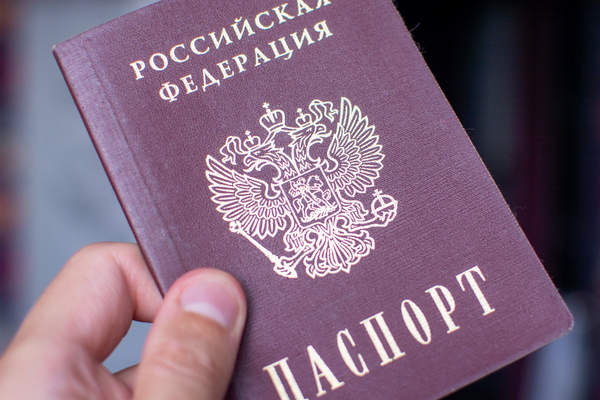After Estonia, Latvia and Finland called for an EU-wide ban on visas for Russians visiting the Union, the country holding the EU presidency, Czechia, has also pulled its weight in calling for a ban.
Czech Foreign Affairs Minister Jan Lipavský has spoken out in favour of an EU-wide coordinated approach. Czechia was the first country within the union to halt all visa issuance for Russian citizens, and Lipavský said: “We are trying to explain to our partners that the approach is justified and effective.”
A tourist ban would be another sanction targeting Russian citizens in the belief that citizens should realise there are consequences to such a militant policy.
“We are convinced as a government that halting visas for ordinary Russian citizens gives a very clear and straightforward signal to the Russian society,” Lipavský argued. He also suggested a visa ban could help “decrease the influence of the Russian secret service in the EU”.
Limited entry to Schengen
As the EU has hated direct air connections with Russia, the ban of visas for Russians in Czechia, Lithuania, Estonia, Latvia and Poland is already having an effect on travel to the union, as travellers must apply for a visa from the country that is their first point of entry to the EU.
But Russians who have already obtained a multiple entry visa can still enter the EU via Finland and the Baltic states, which led Estonia to forbid entry into its territory to Russians that are holders of Estonia-issued Schengen visas.
Related News
- Situation at Europe's largest nuclear power plant becoming 'very alarming,' IAEA says
- Moscow starts recruiting volunteers for war, says British secret service
- Estonia and Finland want EU ban on Russian tourists
Other countries bordering Russia could follow suit, as they are under pressure from numerous tourists using border countries as an entry hub into the EU.
Tourist or blanket ban?
Ukrainian President Volodymyr Zelenskyy has called for a total ban on all types of visas for Russians, as Ukrainian Foreign Minister Dmytro Kuleba said Russians “must be deprived of the right to cross international borders until they learn to respect them”.
But some EU politicians say that the ban should only apply to tourists, arguing that visas on humanitarian grounds should still be granted.
Lipavský said he will bring up the question of an EU-wide visa ban for Russians at the “Gymnich” meeting of foreign affairs ministers on 31 August in Prague.
‘Putin’s war’
But not all leaders are in favour of a tourist or blanket ban on Russian visas, as German Chancellor Olaf Scholz is sceptical of banning all Russians from entering the EU. “This is Putin’s war, which is why I have a hard time with this,” he said on Thursday.
He argued that the EU has already adopted sanctions against Russian leaders and individuals who support the war, adding that a blanket ban for everyone would undermine the effect of those individual sanctions.
EU position
The EU decided already on 25 February, the day after Russia’s invasion of Ukraine, to suspend the visa facilitation agreement with Russia. The suspension targets people close to the Russian regime, such as businessmen and diplomats, but not ordinary tourists.
In May, the European Commission issued guidelines to the member states on how to implement the decision. They are obliged to carry out an individual assessment of each visa application and respect international obligations.
There will always be people for which visas will be issued, e.g. humanitarian aid workers, family members, journalists and dissidents, explained a Commission spokesperson at a press conference on Thursday.
Asked by The Brussels Times about the lack of EU coordination on visas for tourists from Russia, the spokesperson replied that coordinated action is important and referred to on-going discussions on EU level to ensure such coordination.

